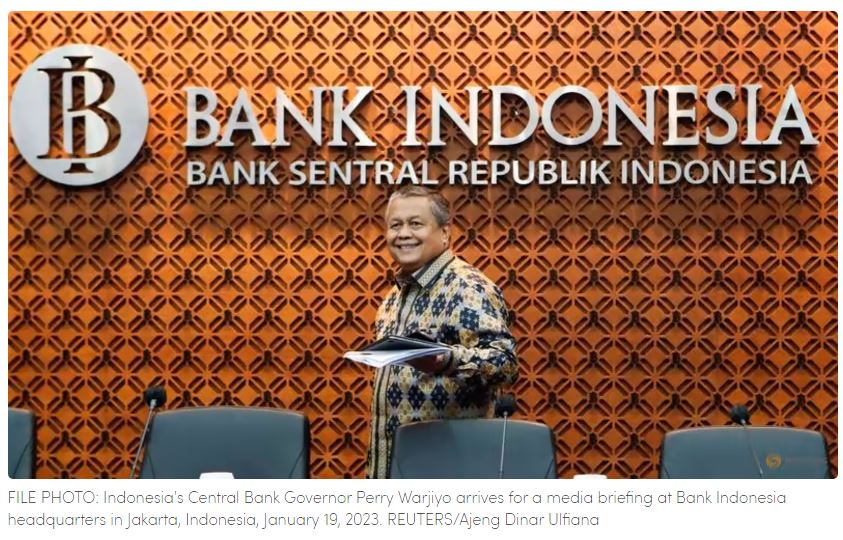Indonesia central bank holds rates, sees inflation cooling sooner
JAKARTA: Indonesia’s central bank on Tuesday (Apr 18) kept its benchmark interest rates unchanged for a third straight meeting, predicting headline inflation would be back within its target sooner and after the rupiah currency strengthened significantly.
Southeast Asia’s biggest economy has been supported by a commodities-led export boom, though economists expect a slowdown in growth as tighter monetary policy across the world weighs on global demand.
Bank Indonesia (BI) left the seven-day reverse repurchase rate unchanged at 5.75 per cent, as expected by all 30 economists polled by Reuters. It also kept steady its two other policy rates.
Governor Perry Warjiyo told a news conference the current benchmark level remained sufficient to keep core inflation within BI’s 2 per cent to 4 per cent target range and steer headline inflation to within the same target band sooner than previously estimated.
“Last month inflation was already at 4.9 per cent, this will continue easing … We believe that starting August, it could be below 4 per cent,” he said, referring to the headline inflation rate in March of 4.97 per cent which was the lowest in seven months.
BI previously expected headline inflation to return to target in September.
Meanwhile, with sentiment for riskier assets improving amid market forecasts that US rates were near their peak, the rupiah has strengthened by almost 4 per cent in the past month, even with some depreciation this week.
BI said the rupiah could continue appreciating, supported by capital inflows and Indonesia’s current account surplus.
Nicholas Mapa, senior economist at ING, said trends were pointing to a potential shift in BI’s tone in coming months as inflation moderates and the rupiah is helped by foreign inflows.
“Against this backdrop, our base case would be for Warjiyo to extend his pause until the third quarter before carrying out rate cuts to help support the ongoing economic recovery,” said Mapa, who also sees a case of BI bringing forward the rate cut to this quarter should inflation slow at a more pronounced pace.
BI raised rates by 225 basis points between August to January to tame inflation, which had shot up due to high global food and energy prices.
Warjiyo said domestic consumption and exports continued to bolster domestic growth.
The central bank kept its 2023 GDP growth outlook at the upper end of a 4.5 per cent to 5.3 per cent range and its current account forecast – between a deficit of 0.4 per cent and a surplus of 0.4 per cent of GDP.


 Thailand
Thailand




